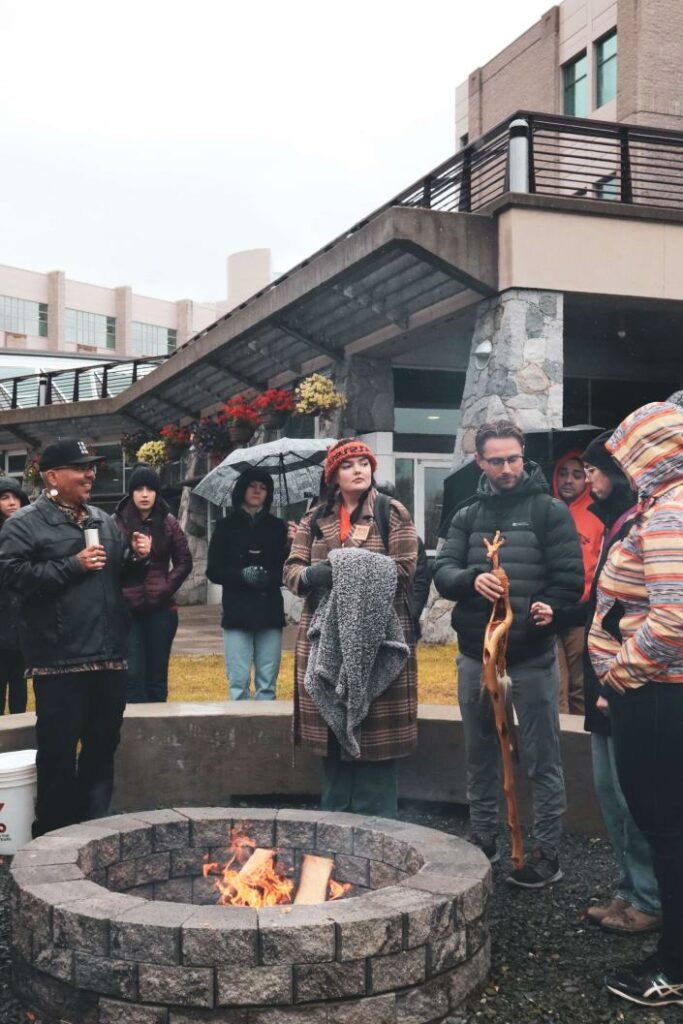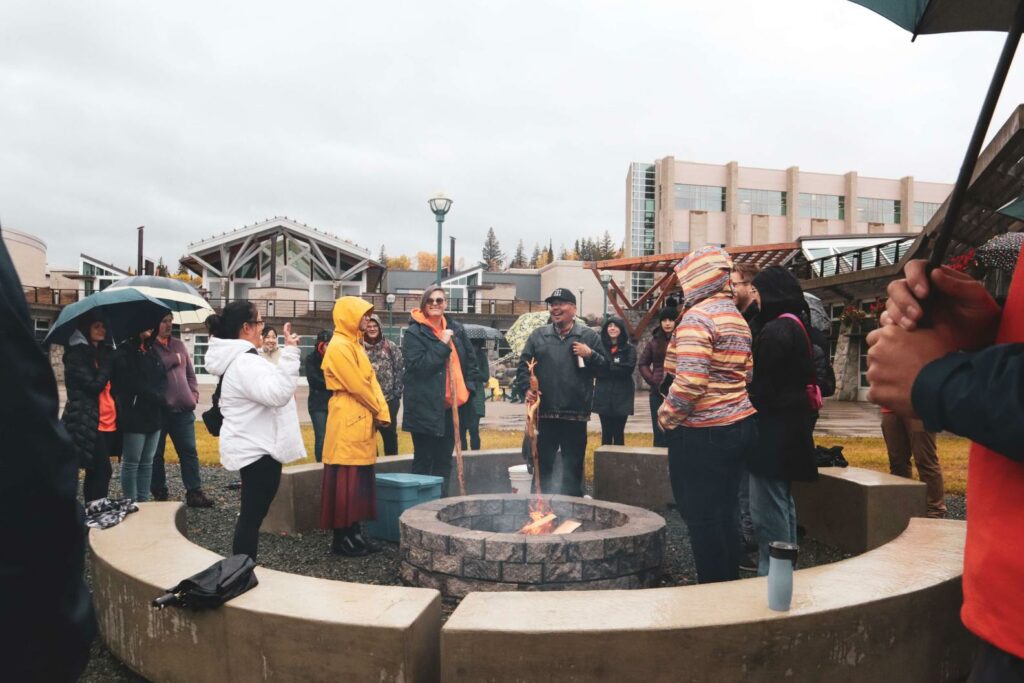Who are you? How do you identify with yourself? With your peers? With the world around you? These are some of the questions that I have been pondering, upon meeting with Clayton Gauthier at the fire circle hosted at UNBC on September 28, 2023.

Despite the windy and slightly rainy weather, Gauthier met with our cohort Friday morning to discuss his experiences growing up and his own personal Truths. He discussed how standardized education was not beneficial to his education experience as it separated him from the land, and disregarded his cultural identity isolating him further from his peers. His major discussion points revolved around the importance of understanding culture and identity – with his being an artist of Cree/Dakelh background. Gauthier is very connected to the natural world and states that he speaks to the trees on a daily basis as a way to ground himself and connect to his identity. He then asked us how we define love, how we practice self-care and how we plan to be true to ourselves. Your self-identity is everything that makes you who you are. It is a synthesis of all of your physical characteristics, personality traits, and interests. My identity, like all identities, is complex but revolves around my family, my love of horse riding, and music.
Now, how can this discussion translate into the teaching practice? As a teacher, I will not be looking to change a student’s identity, but helping them discover what they identify with in an inclusive environment that is safe and secure. Through the inclusion of outdoor coursework to develop student connection to the land, the introduction and discussion of world holidays/religions, as well as the provision of resources and safe spaces for those who have experienced exclusion, hostility and disrespect (including members of the LGBTQ+, P.O.C communities, neurodivergence and those who live with disabilities).
This meeting made me realize the further need for decolonization within our educational system. We can practice decolonization through the recognition that colonial values hurt our communities and that through the acceptance and respect of various other ways of living (culture/religion/beliefs/FPPL), we can coexist with each other respectfully with mutual benefits.
In my classrooms, I want to create a culture of acceptance and wonder, one that is open to outside identities and values. However, I am still a learner and I will need time and further thought and study to develop a true understanding and practice of decolonization within my life, my community and my teaching practice.


All Photos taken by teacher candidate Thalia

Leave a Reply